|
Genres, Themes, Actors, and Directors:
- Barbra Streisand Films
- Flashback Films
- Historical Drama
- James Woods Films
- Marital Problems
- Patrick O’Neal Films
- Robert Redford Films
- Romance
- Star-Crossed Lovers
- Sydney Pollack Films
- Writers
Response to Peary’s Review:
As Peary writes, “Robert Redford and Barbra Streisand have truly amazing chemistry in this irresistible… deeply moving movie romance” in which “we come to really sympathize with their characters, to understand their need for each other, to realize that the reasons they aren’t totally compatible… can never be resolved.”

He points out that “the characters are believable and their problems are compelling;” indeed, “the two stars have never been better.” He notes that “as in the best romances, there are laughter and tears by the bucketful” — including “when the crying Katie (Streisand at her most lovable and vulnerable) calls Hubbell [Redford] to ask him to take her back”:
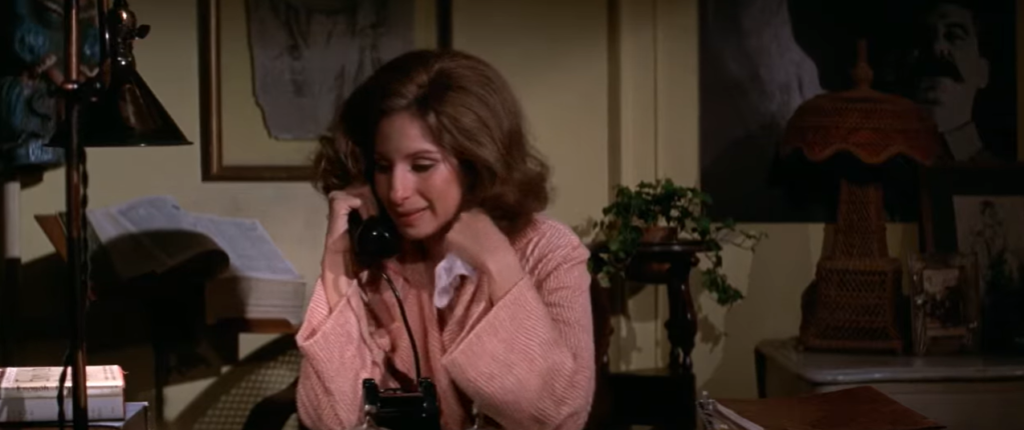
… “when they break up in the hospital”:
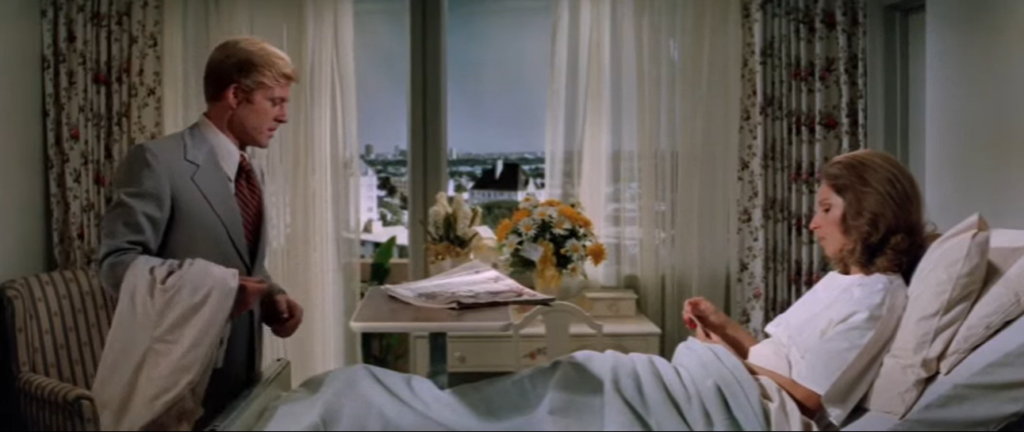
… and “when they meet years later in New York.”
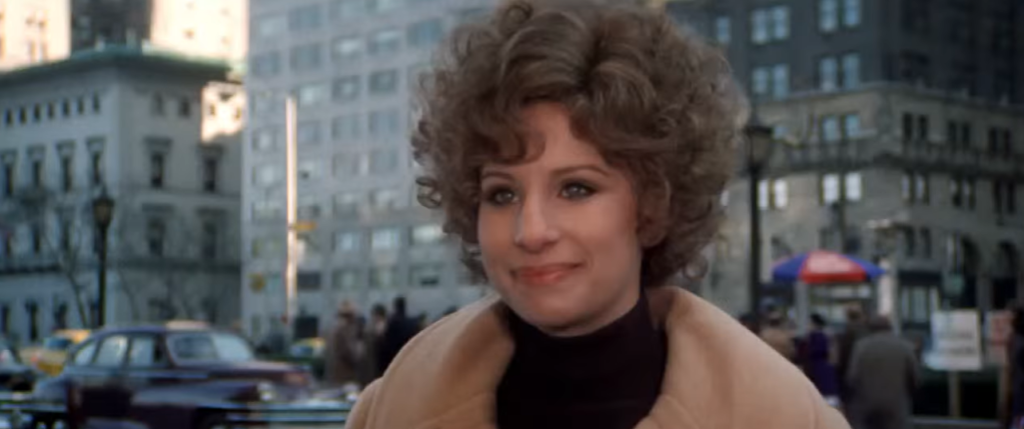
In Alternate Oscars, Peary nominates this as one of the Best Pictures of the Year, nominates Redford as one of the Best Actors of the Year, and names Streisand Best Actress of the Year. He points out that she plays a woman “who has such heart, such sensitivity, such dedication to unpopular causes” and “never lets up for a minute, never relaxes just to enjoy life, never stops trying to better the world and their relationship, never stops prodding Hubbell to fulfill his early ambitions to be a novelist.” The result is that we “feel emotionally drawn to her every moment she’s is on the screen — after all, she’s always walking a high wire and Hubbell has taken away the net.”
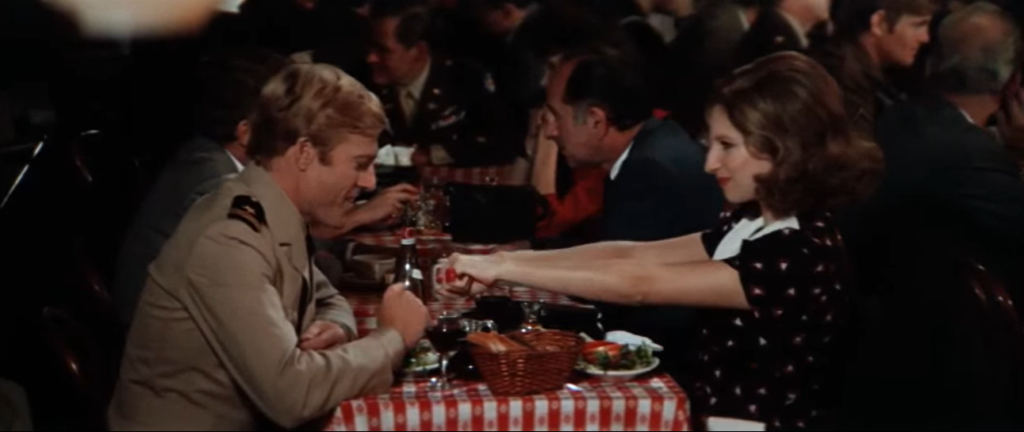
He notes a few more of Streisand’s “wonderful, truly memorable moments” in the film — including “a scene in college writing class” as Katie “is ripped apart when the professor doesn’t choose to praise or read aloud her much-suffered over essay, yet despite her own disappointment she still listens to the professor praise and read Hubbell’s introspective story and looks at Hubbell with new appreciation and understanding.”
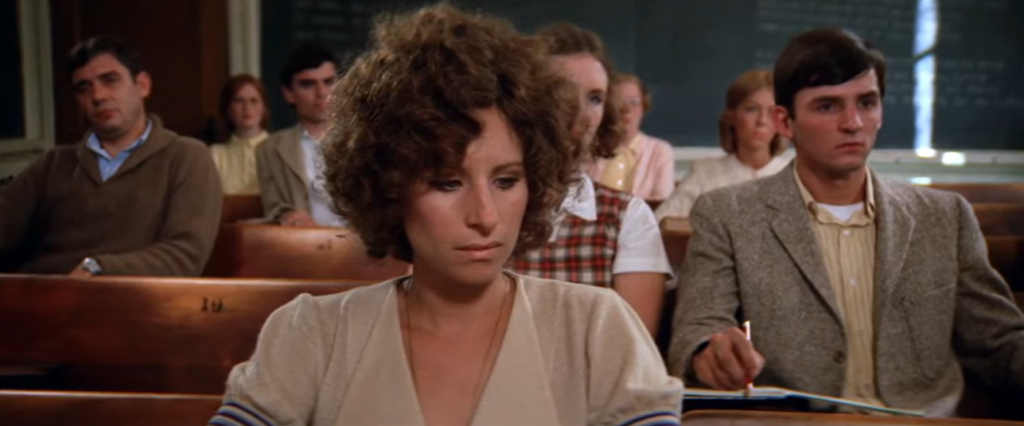
Later on, Peary writes he loves “Streisand’s expression when she realizes that the drunken Hubbell, whom she has not seen in seven years, has crashed in her bed” and “she daringly strips and climbs in next to him.”
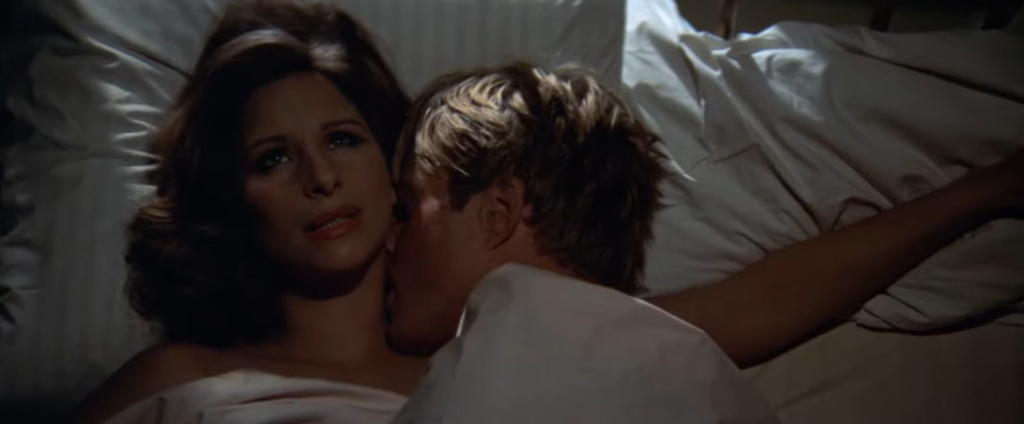
He also calls out the emotional “screening-room scene, when Katie confronts Hubbell about his affair and his trashy movie” and finally says, “Oh, I want… I want… I want us to love each other.”
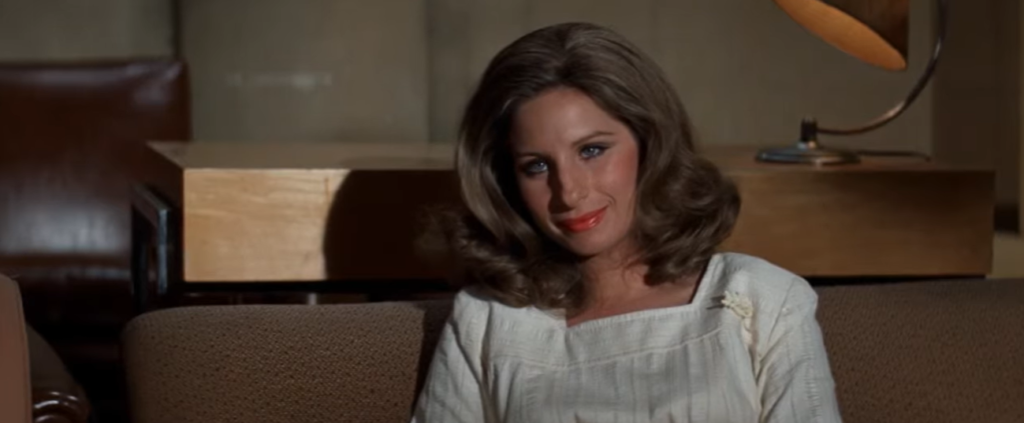
Indeed, The Way We Were may be the ultimate film about a couple who love each other, but mutually recognize they simply can’t stay together as romantic partners; anyone who’s been through this will surely resonate with the storyline here, and feel gratitude that neither individual is ever demonized for their stance. These are simply radically different people with divergent goals, who also happen to be attracted to and care for one another. Theirs is a sweet, heartbreaking story that hasn’t aged, and remains compelling.
Note: Watch for James Woods in an early supporting role as Streisand’s college prom date.
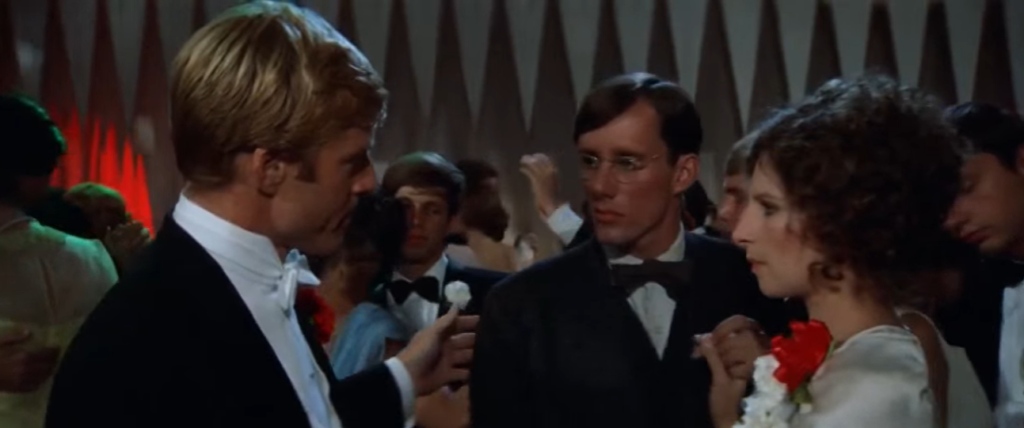
Notable Performances, Qualities, and Moments:
- Barbra Streisand as Katie Morosky
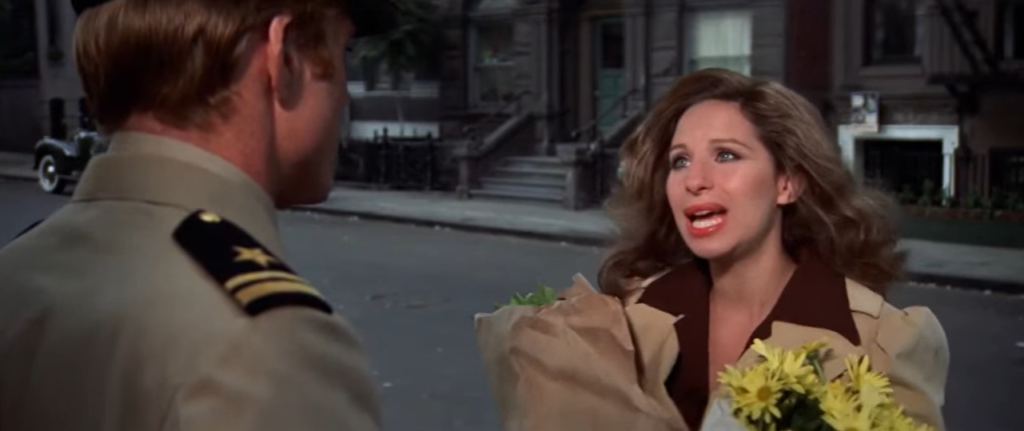
- Robert Redford as Hubbell Gardiner
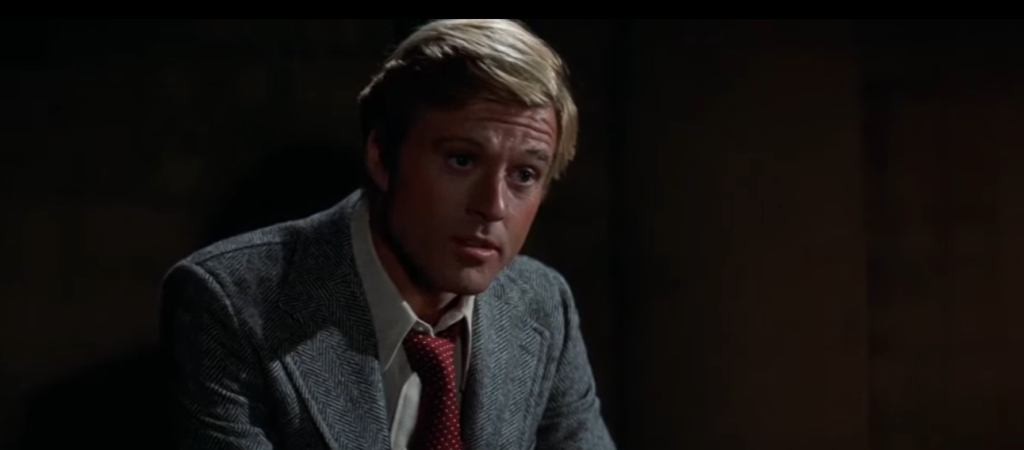
- Harry Stradling, Jr.’s cinematography
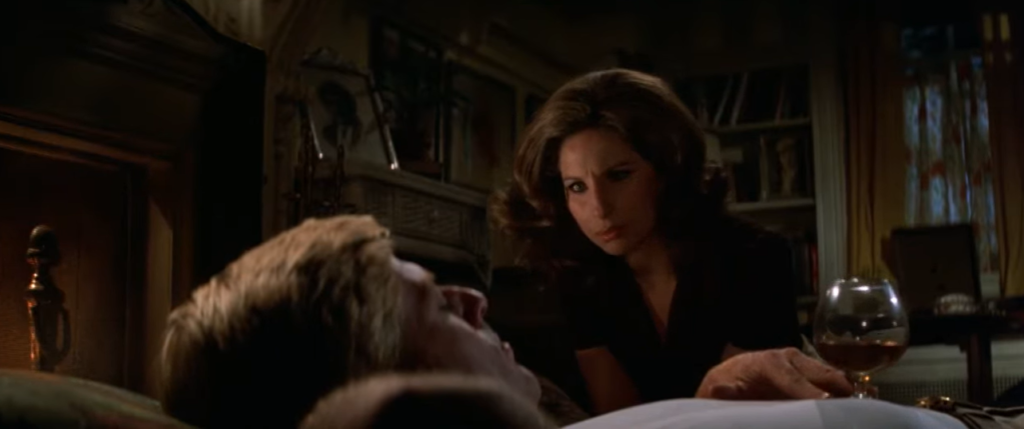
- The haunting title song
Must See?
Yes, as a still-powerful romantic drama.
Categories
Links:
|